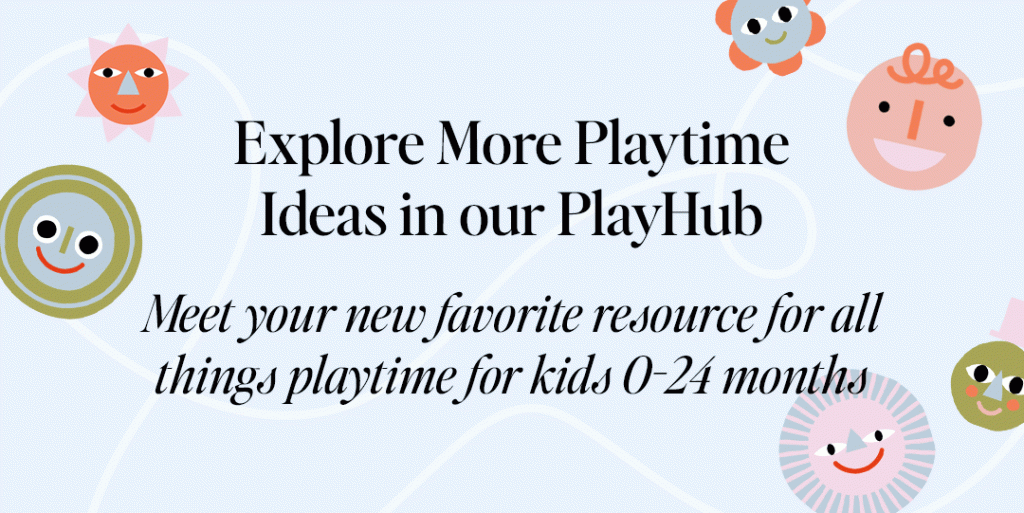If you have a toddler, then you already know: they have big emotions, and they aren’t afraid to show it. One minute they’re asking you for a snack, and the next minute, said snack is all over the floor because you had the audacity to give it to them.
Make it make sense.
The fact is: your toddler is likely feeling just as confused as you, according to early childhood education professional Linda Nelson, who is KinderCare’s curriculum expert.
“Dealing with large, intense emotions, whether good or bad, can be overwhelming at times for young children because they don’t fully understand what they’re experiencing,” Nelson said. “They need someone to help them understand their emotions and how to manage them.”
And, let’s face it: a lecture isn’t going to cut it with a toddler.
Toddlers start to develop the capacity for empathy around two-years-old. And while they can’t be expected to control their emotional outbursts just yet, the first step in that direction is helping them understand their own and others’ emotions.
That’s where play comes into the picture.
Pretend Play Lets Toddlers Explore Emotions Safely
Pretend play is a toddler favorite, and for good reason: it helps them explore and express their emotions and thoughts in a safe, make-believe world. During pretend play, kids get to experiment with social and emotional roles, free of consequence. In this way, pretend play helps your child learn what it’s like to be in someone else’s shoes.
Our kids learn from us, and modeling empathy is one of the first ways we can teach even the youngest ones about empathy, experts said. That’s why you may notice your child imitating things you say or do during their pretend play.
“If you do something that you need to apologize to your child or another family member for, model what a sincere apology looks like,” Nelson said. “State what you are sorry for, why what you did was wrong, and what you will do differently in the future.”
By modeling empathetic behavior, and watching your child reflect it back to you and others, you’ll quickly see that children tend to do as we do, not as we say.

Source: Shutterstock
Playing With Others Teaches Lifelong Emotional Skills
Playing with others, or social play, is another building block toward toddlers’ understanding of how emotions work. Social play goes well beyond what you see happening on the playground. When kids play with others, they’re learning to navigate social cues and practicing skills like self-regulation, sharing, cooperation and so much more.
Watching toddlers learn how to play nicely with others isn’t always pretty—toddlers tend to think about their own needs and often act in ways that might look “selfish,” but this is normal, according to the American Academy of Pediatrics. Even kids who push and shove are typically just as “normal” as those who don’t, the AAP says.
While it’s a good idea to supervise toddler play and be ready to intervene if someone is about to get hurt or seriously upset, experts recommend letting kids play without your help for the most part. The more they play with others, the more they learn about their own and others’ emotions—from real life experience.
One of the early stages in toddlers’ emotional development is between ages 2 and 3, when they understand that they are their own person separate from others, licensed clinical psychologist Dr. Sarvenaz Sepehri of A Change Within Sight told us.
“Toddlers are just starting to learn about the myriad of emotions they—and others—are capable of feeling,” Dr. Sepehri said. “They are also only just beginning to gain the ability to express their own feelings through words.”
Reading Helps Toddlers Understand What Emotions Look Like
Reading is another great way to help toddlers learn about and identify emotions. Reading helps kids put names to emotions, laying the foundation for them to express what they’re feeling in the future or to recognize the emotions someone else is experiencing.
At the end of the day, play is so much more than a time for your little one to let loose. The soft skills they are learning through every one of their interactions will help them build their emotional intelligence and capacity for empathy down the line. All in all, this is good news for parents since play is one of few things we don’t have to beg our toddlers to do.


 "
"
